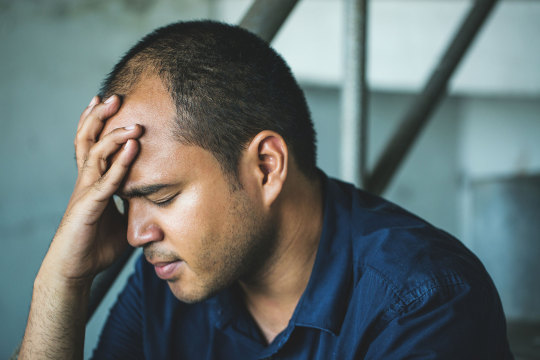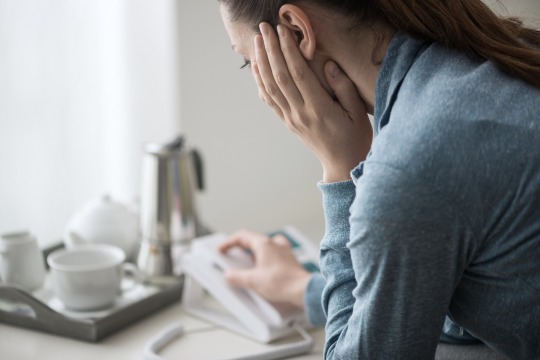Text
Learning to dance with stress and anxiety

If you are reading this, you know what it is like to be anxious and stressed. Many people with anxiety are highly distressed and often feel that nobody can understand how they are feeling. The good news is that you’re not alone. Anxiety and stress are the most common reasons that people come to see a psychologist. People with severe anxiety certainly benefit from treatment, but almost everyone could do with a few strategies to manage their anxiety. I’m not going to spend too much time talking about anxiety, because I think that it would me more helpful if I give you a couple of strategies that work.
Why these strategies work
The human mind and body are closely connected. When we have stressful thoughts such as “I can’t do this” or anxious thoughts such as “what if something bad happens”, our bodies respond to this. Feeling of anxiety are uncomfortable, but our bodies are trying to be helpful. They think that we may be in danger and are getting us prepared to respond. However, most of the dangers we face in modern times aren’t physical dangers, they’re psychological ones. Our bodies can’t tell the difference between the two, so that they prepare for a physical emergency just to be safe. By reducing the amount of anxiety in our bodies, we can teach our mind to relax. I’m going to show you two strategies that help with anxiety. If your anxiety is the most anxious you’ve ever been (10 out of 10) they won’t bring you straight down to a zero, but it could be enough to bring you down to a 7 or an 8. Most people find them helpful, but everyone is a little bit different. Sometimes, it is a matter of finding what works for you.
Breath out to breath in?
The first strategy uses a natural reflex that we all have. Quite often when people are anxious they are told to take three deep breathes in to calm down. And this is true. But it can be difficult to breath in if you are feeling stressed and your chest is tight. A neat little trick to get around this to breath out, and then let go.
Try it now. Put both of your hand on your stomach and gently press your belly in as you breathe out through pursed lips…and then let go.
Hopefully you noticed that as soon as you let go, your belly filled with air. Now do this three times, emptying your lungs completely. Pay attention to what your body feels like, before, and after the exercise.
Did it work for you? Kind of cool isn’t it.
Just relax?
So, you might be on board with the idea that relaxing your body will help relax your mind, but if it was that simple you would be doing already, right? Just like the breathing exercise, this technique uses our bodies natural reflexes to help it to relax. When we become anxious our muscles become tight. You might notice that yours hands automatically turn into fists, your shoulders become stiff, or you get headaches because of the tension in your neck and face. An effective way of reducing this muscle tension—and reducing our anxiety—is to contract your muscles, one at a time, and then release them.
Why does this work? If our bodies had no method of releasing muscle contractions, we would slowly become stiff and roll up in a ball. This method works because once a muscle has been contracted and then released, the state that the muscle returns to has less tension then before the contraction. As you do the exercise, notice what it feels like for your body to be relaxed. What you are effectively doing is training your body to remember this relaxed state as your “new normal”. I’ve posted a link to an MP3 from the University of Melbourne below. Allow 20 minutes for this exercise, and practice regularly.
http://services.unimelb.edu.au/counsel/resources/audio/progressive_muscle_relaxation
Need a little more help?
Many people receive some benefit from using these two tips. You might find that these are helpful, but your anxiety persists. Consultation with a psychologist can help you explore additional strategies and get to the root of your stress and anxiety. Identifying and changing unhelpful thinking patterns and counterproductive actions often reduces the influence that stress and anxiety have on your life. Darius frequently works with people experiencing chronic stress and anxiety. He has the clinical knowledge and skills to help you find relief from your distress. Book and appointment now, or contact us for further information.
Read the full article
0 notes
Text
Anxiety Treatment and Anxiety Help, and Panic Attack Help

What is anxiety, and what are panic attacks?
Anxiety may be the most distressing thing that you will experience, but TrueHope anxiety counselling can help. Anxiety treatment can help you to feel less anxious, and more centred, composed, and calm. We all experience small amounts of anxiety from time to time. Sometimes it helps us to pay attention to things that are important or dangerous. But it can also easily become painful and overwhelming, making it difficult for you to do the things that you want or need to do. Sudden surges of anxiety can make you feel like you’re losing control, and some people even feel like they’re going to die. These surges are called panic attacks or anxiety attacks. Anxiety and panic can make us withdraw from others and avoid anything that makes us anxious. This can leave us feeling worthless, afraid and alone.
Is what I'm feel anxiety symptoms, or panic attack symptoms?
If you’re experiencing anxiety, you may feel all these symptoms or only some.
Symptoms of anxiety:
Finding it hard to wind down
Dryness of mouth
Over-reacting to situations
Trembling hands and legs
Agitation
Difficulty relaxing
Frustration
Irritation
Racing heart
Fast and heaving breathing
Feeling scared and not knowing why
Panic Attack Symptoms:
Heart palpitations or a racing heart.
Perfuse sweating
Trembling hands and legs
Shortness of breath.
Feeling like your being chocked or smothered.
Chest pain and tightness in the chest.
Feeling like vomiting or feeling butterfly’s in the stomach.
Dizziness, light-headedness, feeling like you might faint.
Feeling hot or cold sensations
Feeling numb or tingling in the arms and legs.
Feeling like the world isn’t real or you’re not connected to your body.
Feeling like you’re “going crazy" or losing control.
Feeling like you’re going to die.
What is the best anxiety treatment? How can anxiety counselling help?
Anxiety counselling is one of the best anxiety treatments. If you’re feeling overwhelmed you’re not alone. Anxiety and panic are the most common reasons that people contact TrueHope for therapy. The good news is that they are both very treatable. Most people experience significant relief after completing a course of treatment and can get back to the things they really want to do with their lives.
At TrueHope we tailor your treatment to you, your personality, and the type of anxiety that you’re experiencing. When we experience anxiety, this often leads to an over-stimulation of the nervous system and the early stages of therapy normally include strategies to reduce this stimulation. These options will only be used if appropriate for you, and other strategies that look at your thoughts and emotions become more important in latter stages of treatment.
Access anxiety help now
You can access anxiety counselling now by using our online booking system or phoning us directly. You might also like to find out more about rebates and funding options that are available for you.
Bonus tip:
You can check some practical strategies to help with anxiety and panic in our ‘Learning to dance with stress and anxiety’ guide. If you would like some help with using these strategies or are ready to start therapy give us a call now or book an appointment.
Take me to the home page.
Read the full article
0 notes